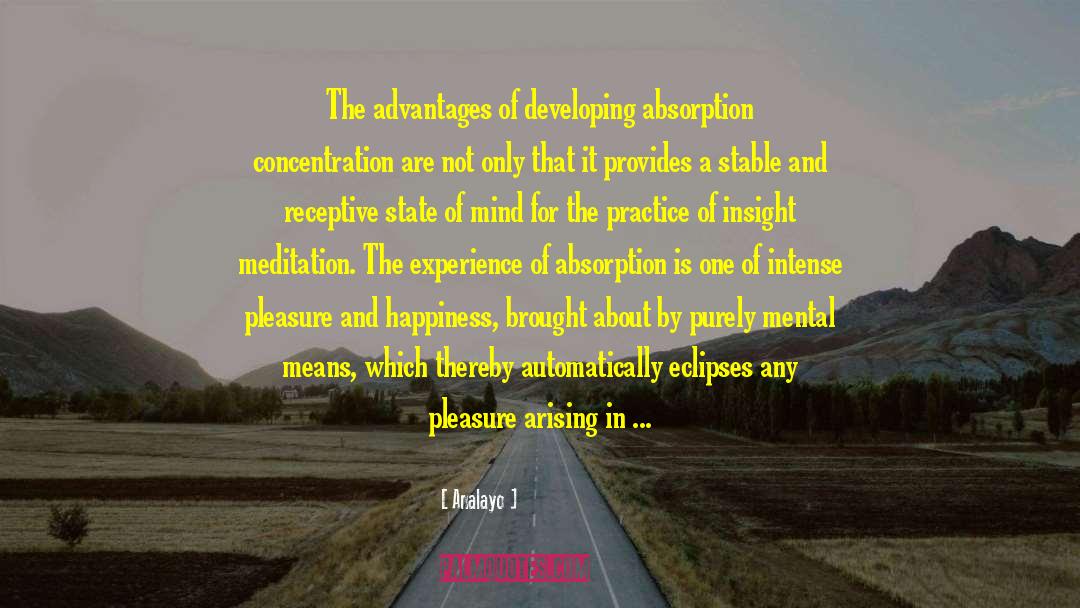Analayo Famous Quotes
Reading Analayo quotes, download and share images of famous quotes by Analayo. Righ click to see or save pictures of Analayo quotes that you can use as your wallpaper for free.
The term satipaṭṭhāna can be explained as a compound of sati, "mindfulness" or "awareness", and upaṭṭhāna, with the u of the latter term dropped by vowel elision. The Pāli term upaṭṭhāna literally means "placing near", and in the present context refers to a particular way of "being present" and "attending" to something with mindfulness. In the discourses [of the Buddha], the corresponding verb upaṭṭhahati often denotes various nuances of "being present", or else "attending". Understood in this way, "satipaṭṭhāna" means that sati "stands by", in the sense of being present; sati is "ready at hand", in the sense of attending to the current situation. Satipaṭṭhāna can then be translated as "presence of mindfulness" or as "attending with mindfulness."
The commentaries, however, derive satipaṭṭhāna from the word "foundation" or "cause" (paṭṭhāna). This seems unlikely, since in the discourses contained in the Pāli canon the corresponding verb paṭṭhahati never occurs together with sati. Moreover, the noun paṭṭhāna is not found at all in the early discourses, but comes into use only in the historically later Abhidhamma and the commentaries. In contrast, the discourses frequently relate sati to the verb upaṭṭhahati, indicating that "presence" (upaṭṭhāna) is the etymologically correct derivation. In fact, the equivalent Sanskrit term is smṛtyupasthāna, which shows that upasthāna, or its Pāli equivalent upaṭṭhāna, is the correct choice for the compound.

Another aspect inviting contemplation is the fact that the affective tone of any feeling depends on the type of contact that has caused its arising. Once this conditioned nature of feelings is fully apprehended, detachment arises naturally and one's identification with feelings starts to dissolve.

The Pāli term for "feeling" is vedanā, derived from the verb vedeti, which means both "to feel" and "to know". In its usage in the discourses, vedanā comprises both bodily and mental feelings. Vedanā does not include "emotion" in its range of meaning. Although emotions arise depending on the initial input provided by feeling, they are more complex mental phenomena than bare feeling itself and are therefore rather the domain of the next [third] satipaṭṭhāna, contemplation of states of mind.

The advantages of developing absorption concentration are not only that it provides a stable and receptive state of mind for the practice of insight meditation. The experience of absorption is one of intense pleasure and happiness, brought about by purely mental means, which thereby automatically eclipses any pleasure arising in dependence on material objects. Thus absorption functions as a powerful antidote to sensual desires by divesting them of their former attraction.

A close examination of the instructions in the Satipaṭṭhāna Sutta reveals that the meditator is never instructed to interfere actively with what happens in the mind. If a mental hindrance arises, for example, the task of satipaṭṭhāna contemplation is to know that the hindrance is present, to know what has led to its arising, and to know what will lead to its disappearance. A more active intervention is no longer the domain of satipaṭṭhāna, but belongs rather to the province of right effort (sammā vāyāma).
The need to distinguish clearly between a first stage of observation and a second stage of taking action is, according to the Buddha, an essential feature of his way of teaching. The simple reason for this approach is that only the preliminary step of calmly assessing a situation without immediately reacting enables one to undertake the appropriate action.

Although contemplating the nature of the body highlights its less attractive features, the purpose of the exercise is not to demonize the body. While it is certainly true that at times the discourses describe the human body in rather negative terms, some of these instances occur in a particular context in which the point being made is that the speakers in question have overcome all attachment to their body. In contrast, the Kāyagatāsati Sutta takes the physical bliss of absorption attainment as an object for body contemplation. This passage clearly demonstrates that contemplation of the body is not necessarily linked to repugnance and loathing.
The purpose of contemplating the nature of the body is to bring its unattractive aspects to the forefront of one's attention, thereby placing the attractive aspects previously emphasized in a more balanced context. The aim is a balanced and detached attitude towards the body. With such a balanced attitude, one sees the body merely as a product of conditions, a product with which one need not identify.

Recollection of death also serves as a useful preparation for the time when one actually has to face death. As the concluding exercise among the body contemplations, a regular recollection of death can lead to the realization that death is fearful only to the extent to which one identifies with the body. With the aid of the body contemplations one can come to realize the true [impermanent] nature of the body and thereby overcome one's attachment to it. Being free from attachment to the body, one will be freed from any fear of physical death.

